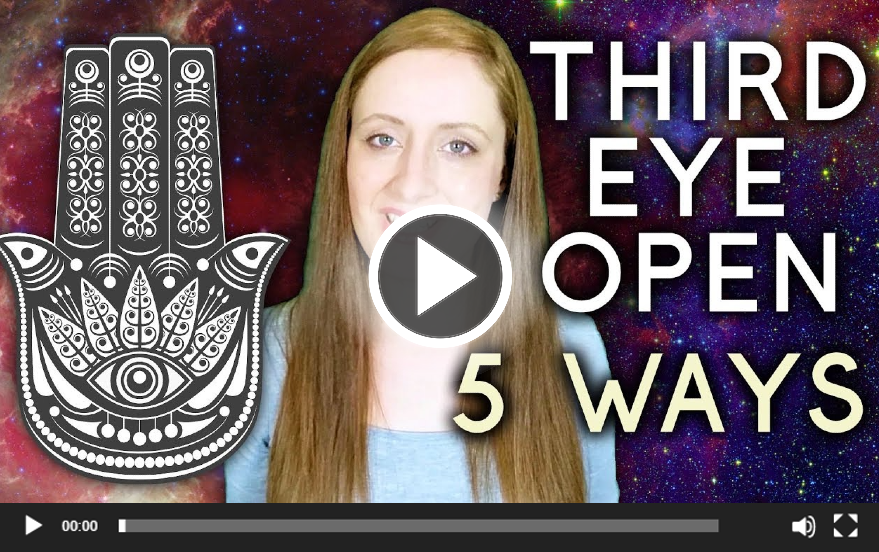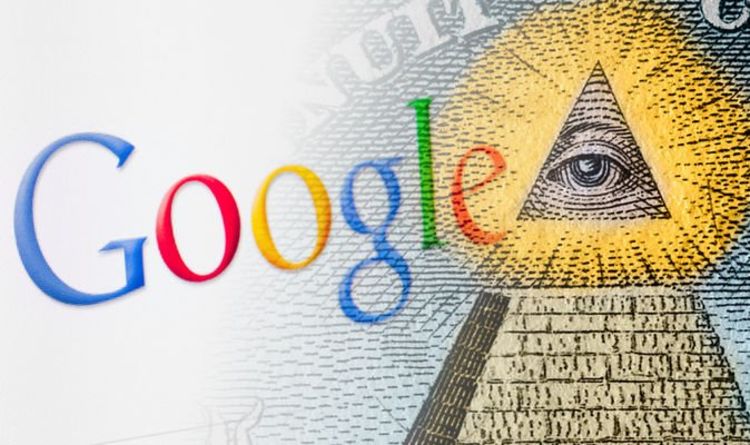The digital age has given birth to titans, but none as omnipotent as Google. With its vast reach, it has the power to control not only what we see but how we perceive it. The question that plagues us is not just about the nature of this control, but the depth of its influence.
Robert Epstein, a distinguished psychologist with a Ph.D. from Harvard and a track record as the former editor in chief at Psychology Today, has been at the forefront of unmasking this digital leviathan. His journey into the heart of Google’s operations began on a seemingly ordinary day in January 2012, when he received a series of emails from the tech giant alerting him to malware on his website. But rather than being a simple heads-up, this was the beginning of a revelation that would lead him down a rabbit hole of manipulation, control, and unchecked power.
Pause for a moment and consider the implications of Epstein’s experience. A private company, not bound by any governmental oversight or regulations, had taken it upon itself to act as the gatekeeper of the internet. Without any external checks and balances, Google had assumed the role of the digital world’s sheriff. But why? Why was it Google, a profit-driven entity, that was doling out these warnings and not a governmental body or a non-profit organization?
Gone viral! – Epstein’s Warning: Why Opening Your Third Eye is Crucial in Today’s Digital Age!

The lack of a customer service department only deepened the enigma. Google, a company worth billions, with its fingers in every digital pie imaginable, did not provide a direct line of communication for its users. And while it was relatively easy to get onto one of their notorious ‘blacklists‘, escaping from it was another story altogether. Businesses, the lifeblood of our economy, were at the mercy of this unseen force. With a mere flick of its digital switch, Google could cripple companies, leaving them floundering in the vast sea of the internet.
But Epstein’s most bone-chilling discovery was not just the extent of Google’s reach, but the manner in which it exerted its influence. As a seasoned programmer, he couldn’t decipher how Google was blocking access to his website across multiple platforms – not just its own, like Google.com and Chrome, but even those of other companies, like Apple’s Safari and Mozilla’s Firefox. This wasn’t just control; this was digital omnipresence.
As Epstein delved deeper, he stumbled upon a growing body of evidence from the marketing world, pointing to the immense power of search rankings. The higher a result appeared on Google, the more trust it garnered from viewers. This trust was not just commercial; it had the potential to shape opinions, mold perceptions, and even direct votes. If a mere shift in search ranking could have such profound implications for businesses, imagine the ramifications it could have on our very beliefs and choices.
Must Read: Trump’s Return: 2020 Election Stolen, 80% of Deep State Defeated, and CABAL’s World War III Plot!
Through rigorous research that spanned years, Epstein unearthed a chilling truth. Biased search results weren’t just a theory; they were a weapon in Google’s arsenal, wielded with precision to sway public opinion and undecided voters. The potency of this influence was staggering, surpassing what most could even fathom.
His findings, eventually published in 2016 in the esteemed U.S. News & World Report, were a clarion call to the world. But it was more than just a revelation; it was a warning. In an era where information is power, the true kingmaker is the one who controls its flow. Google, with its unbridled reach and unchecked authority, stands as a silent puppeteer, pulling the strings of our digital lives.
So, the next time you search for something on the internet, ask yourself: Are you truly free in your choices, or are you just dancing to the tunes of a silent maestro, hidden behind the screen? The digital realm is vast, but its true ruler might just be a single entity, lurking in the shadows, shaping our reality one search at a time.

The Silent Puppeteer: Google’s Hidden Agendas Unveiled
Picture this: An organization with tentacles that reach into every corner of our lives, collecting information, deciding what we should or shouldn’t see, and even manipulating the very core of our beliefs. No, this isn’t some twisted plot from a dystopian novel. This is the reality of Google’s ever-expanding powers.
Let’s get one thing straight: Google is not merely a search engine. It is a behemoth that watches, controls, and influences. I’ve delved deep, and what I found will leave you questioning everything.
1. Surveillance: The Silent Observer
Let’s start with a revelation from Epstein, a voice that refuses to be silenced. He asserts, “The search engine, Google Wallet, Google Docs, Google Drive, YouTube—these aren’t just tools; they’re surveillance platforms.” Imagine every document you’ve created, every video you’ve watched, and every transaction you’ve made, all stored and analyzed. The disturbing truth? For Google, it’s not about providing value to users. It’s about gathering as much data about you as they can. It’s their lifeblood.
Must see! – The Hidden Side of 5G: Google’s Ultimate Tool for Collecting Your Secrets!

2. Censorship: The Hidden Hand
Moving on, Google holds the keys to the vast expanse of the internet. It’s terrifying to realize that they have the power to restrict or even block access to websites at will. Think about it: they control what you can and cannot see, shaping your understanding of the world.
You might believe you’re well-informed, browsing the internet with freedom. But how can you be sure? You only see what they allow you to see. The chilling reality is that “you don’t know what you don’t know.” If Google decides a piece of information doesn’t fit their narrative, it’s as good as gone. Case in point: Epstein cites how articles about Google investing in and taking over DNA repositories have mysteriously disappeared. Your DNA, your very essence, now potentially a part of Google’s vast data troves.
3. Manipulation: The Puppet Master
But perhaps the most unsettling of all is Google’s unparalleled ability to sway public opinion. Epstein warns of Google’s capacity to mold “the opinions, thinking, beliefs, attitudes, purchases, and votes of billions.” And they do it discreetly, operating behind the scenes. The techniques they employ are groundbreaking, and alarmingly, they yield massive shifts in public sentiment in a snap.
Revealed: The Shocking Way Google Uses a Hidden Code to Manipulate and Steal Your Money!

You might wonder: “What’s their end game?” The answer is as old as time: money. Despite their extensive surveillance apparatus, Google’s lifeline is advertising. With a staggering revenue of over $130 billion a year, they peddle the intimate details of your life to advertisers hungry to capitalize on it.
The Silent Power of Search Engines: Google’s Invisible Hand
Let’s unpack this. Dr. Epstein stumbled upon a phenomenon he termed SEME – the Search Engine Manipulation Effect. And no, it’s not about displaying ads or redirecting you to purchase something. It’s about subtly shifting your political beliefs. Remember the last time you were undecided about a political candidate and turned to Google for some clarity? Well, that’s precisely where the magic (or shall we say, manipulation) begins.
The genius behind Dr. Epstein’s experiment was its design. He didn’t use politically charged or familiar topics. Instead, he took American participants and exposed them to the 2010 Australian Prime Ministerial election – a topic they were largely unfamiliar with. The results? A jaw-dropping shift of 48% in voting preferences. You read that right. Nearly half of the undecided voters were swayed simply by the search results they were presented with.
However, what’s even more alarming is the stealthiness of this manipulation. Most participants were oblivious to the bias in their search results. It’s akin to a master magician’s sleight of hand, diverting attention from the actual trick. Epstein and his team found that by merely sprinkling in a few pro-opponent results amidst a sea of pro-candidate ones, the bias became nearly invisible. Yet, this camouflage did nothing to reduce its potency. In fact, a further experiment revealed a staggering 63% shift in voter preference.

A nationwide study across the U.S. took this a step further. Even when people noticed the bias, it didn’t shield them. Paradoxically, they leaned even more into the bias. Why? Because of the conditioned trust we place in high-ranking search results. Think about it. When you search for the capital of France or today’s weather, the accurate answer is almost always at the top. Over time, this conditions us to equate high-ranking results with truth and reliability.
But here’s where the plot thickens. 50% of all clicks are on the top two results, and a whopping 95% never venture beyond the first page. So, if the first page is biased towards one candidate, that’s predominantly what the searcher sees. And this, ladies and gentlemen, is how perceptions are silently, yet powerfully, shifted.
Google May Have Shifted Millions of Votes in 2016 Elections
In a groundbreaking endeavor in early 2016, Epstein established an avant-garde monitoring system, a digital behemoth that would closely watch election-related searches on the trio of search giants: Google, Bing, and Yahoo. Deploying 95 undercover field agents across 24 states, this operation was cloaked in secrecy, reminiscent of the covert operations of the Nielsen company. Nielsen, renowned for generating television show ratings, employs secret families and equips them with tracking devices. Drawing inspiration from this, Epstein’s team embedded custom passive software into the agents’ computers. This software was the silent observer, meticulously recording every keystroke and click.
The data compilation was staggering. Over 13,207 election-linked searches and an astounding 100,000 linked web pages were preserved. The subsequent evaluation was the coup de grâce. Each web page was analyzed for bias, either leaning towards Clinton or Trump. The revelations were nothing short of explosive.
Google, the omnipresent search behemoth, displayed a conspicuous pro-Clinton bias in all 10 top search positions on its first results page. Its competitors Bing and Yahoo, however, were devoid of such inclinations. The question then loomed – how profound was this bias’s impact?
Harnessing experiments from 2013, Epstein quantified the influence. A jaw-dropping 2.6 million undecided votes, at the very least, could have tilted towards Clinton, owing to this Google bias. The ceiling of this influence is even more alarming. An estimated 10.4 million undecided voters might have been swayed towards Clinton. All this manipulation operated silently, invisibly nudging voters, leaving no trace, no footprint.
Google Has the Power to Determine 25% of Global Elections
Let’s break this down. While many are concerned with Google’s influence on U.S. politics, the actual scope of its power extends far beyond America’s borders. Epstein’s testimony to Congress was more than just an alarm bell for American democracy; it was a clarion call for democracies worldwide. His motive? The preservation of democratic values and the sanctity of free and fair elections.
In 2015, Epstein made a calculation that sent ripples through the corridors of power. With Google dominating more than 90% of searches globally, it was evident that its influence was determining the outcomes of nearly a quarter of national elections across the world. At first glance, this might seem implausible. How can a single entity sway so many decisions?

The answer lies in the narrow margins of many electoral outcomes. Take the 2010 Australian election, for instance, where the win margin teetered at a mere 0.2%. With such a fragile balance, biased search results can easily tip the scales in favor of one candidate. The unsettling truth is that Google has the tools to easily flip or even rig an election.
Consider this: It doesn’t necessarily take a boardroom decision at Google. A single rogue employee with the right access could wield this immense power. You might be tempted to dismiss such an idea as far-fetched, but Epstein brings to light a revelation that makes this all too real.
Shumeet Baluja, a senior software engineer who has been with Google since its infancy, penned a lesser-known novel, ‘The Silicon Jungle‘. This work of fiction paints a vivid picture of Google and highlights the terrifying authority individual Google employees possess. The power to elevate or destroy any company, any individual, lies within their grasp. When queried about how Google permitted the publication of such a damning narrative, Baluja’s response was eerily telling: Google had him promise never to promote the book. Hence, it remains shrouded in obscurity.
A Dictator Unlike Anything the World Has Ever Known
Let’s take a deep dive into the uncharted waters of Google’s search algorithm, a behemoth that has more influence on our world than we may care to admit.
Google, a name synonymous with online search, has grown into an entity that arguably possesses more power than any government, organization, or individual. But here’s the alarming truth: this search giant could use its biased algorithm to favor one candidate over another in an election. And what’s more disturbing? It doesn’t even matter to them who the candidate is!
Game changer! – NESARA’s Teachings REVEALED: Your Ultimate Guide to Breaking Free from Google’s Grip!

Dr. Epstein, the voice of reason in this digital cacophony, has aptly highlighted the grave danger of allowing a mere algorithm to potentially determine the course of our future. “It’s crazy,” he says. And crazy it is. A computer program, devoid of emotions, ethics, or political affiliations, could decide the fate of nations.
And if you think there’s a legal barricade against such a thing, you’re in for a shock. The courts have given Google a free pass, equating its search results to free speech. So, in essence, Google can demote businesses, blacklist entities, and potentially manipulate political outcomes, all under the banner of ‘free speech.’
But all is not lost. Visionaries like Epstein are advocating for systems that can monitor and counteract this looming digital influence. He asserts, “As a species, it’s the only way we can protect ourselves from new types of online technologies that can influence us.“
In a damning statement, Epstein underscores the unparalleled power Google wields, “No dictator anywhere has ever had even a tiny fraction of the power that this company has.” Think about that for a moment. Throughout history, tyrants and dictators have risen and fallen, but none of them could have dreamed of the influence Google commands today.
Epstein’s proposition of making Google’s search index a public commons is a commendable solution. This would pave the way for other search platforms to emerge, breaking Google’s monopoly and providing users with unbiased and varied search results.
But the rabbit hole goes deeper.
In 2016, another revelation shook the digital landscape. The so-called ‘Search Suggestion Effect‘ or SSE. What was originally designed to save time for users by predicting their search terms based on historical data, soon morphed into a sinister tool for manipulation.

The revelation that it was almost impossible to get negative search suggestions related to certain political figures on Google, while other platforms showed a vastly different picture, is not just concerning; it’s downright chilling. Epstein’s experiments further shed light on this dark secret. By merely tweaking search suggestions, he could sway undecided voters in a massive way.
Imagine, just a few altered search suggestions, and the political landscape could shift dramatically. The sheer audacity of this manipulation is breathtaking.
The Unseen Eye: How Google’s Silent Web Envelops Us All
Robert Epstein, in his groundbreaking article titled “Seven Simple Steps Toward Online Privacy,” unveils the startling reality of our online existence. The depth of his research can be gauged from the initial statement he makes, declaring that he hasn’t received a targeted ad since 2014. While this might seem like a trivial achievement to some, it’s nothing short of monumental in today’s digital age. Imagine a life free from the intrusive pop-ups nudging you to buy something you casually mentioned in a conversation. Sounds dreamy, right? But why is it so hard for the rest of us?
Increasingly, individuals recount eerie experiences where their offline conversations seem to have digital repercussions. A casual chat about Italian recipes with a friend, and the next thing you know, your device is flooded with ads for Italian cookbooks, pasta makers, and the nearest Italian restaurants. Coincidence? Hardly.
Related: NESARA’s October Surprise! Biden’s Impeachment Trial Might Finally Unleash the MEDBEDS Revolution!
You might argue that personal assistants like Amazon Alexa or Google Home only “listen” to serve us better. But isn’t it alarming that these devices might be picking up more than just our song requests or weather inquiries? They are silent witnesses to our personal lives, our highs and lows, and our most intimate secrets. Every word uttered might be stored, analyzed, and potentially used. And not just by these assistants, mind you.
Remember Nest? The company behind smart thermostats? A beacon of modern home convenience. Yet, post its acquisition by Google, these innocent-looking devices were equipped with microphones and even cameras. Why, you ask? Patents issued to Google provide a chilling answer. They now have proprietary rights to methods of analyzing sounds captured in the sanctity of our homes. These methods could determine if you need a dentist or even a therapist, based on what your devices “hear.” It’s no longer just about targeted ads; it’s about targeted lives.
The tendrils of surveillance don’t stop there. Despite efforts by some vigilant netizens to disable location tracking on their devices, recent findings suggest that these efforts might be in vain. The digital world seems to have a relentless pursuit to know where you are, what you’re doing, and who you’re with.
How Google Tracks You Even When You’re Offline
Most individuals, wrapped in their daily hustle and bustle, are oblivious to the fact that every step they take, every corner they turn, is meticulously recorded. Epstein’s revelations shed light on a disturbing fact: location tracking technology has evolved to be astoundingly intricate. It’s not just relentless; it’s borderline predatory.
Hot topic! – Discover Trump’s Morning Secret: Why THIS Coffee is the Ultimate Energy Booster!

Take Android cellphones, for instance. A staggering majority of users across the globe swear by Android, a crown jewel in Google’s empire. But here’s the kicker: these devices have the capability to tail you even when you believe you’ve vanished off the grid. No internet? Geo tracking disabled? Think you’re safe? Think again. Epstein’s words ring alarmingly true, “It just gets creepier and creepier.“
Imagine this scenario: You decide to detach from the digital world. You yank out your SIM card, sever ties with your mobile service provider, and bask in the illusion of solitude. But your trusted device, in its silent vigil, continues to document your every move. The chilling part? The minute you decide to reenter the connected world, all that accumulated data rushes straight to Google’s vaults.
You’d be mistaken to assume that this tracking frenzy stops at your physical movements. Your digital footprints are equally surveilled. Even if you’re a rare breed that doesn’t directly engage with Google’s suite of products, you’re still not off the radar. Why? Because Google Analytics is the unseen guest on a majority of websites you visit, meticulously logging your every click and hover.
Must Read: The 5D Portal is Now Open – Earth’s DNA-Altering Energy Surge Begins!
The audacity lies in the secrecy. Users are often left in the dark, clueless about whether a website they’re on is a silent informant to Google. It’s not just about targeted ads or personalized experiences anymore. It’s about a power dynamic, where one entity holds a disproportionate amount of information, and the common man remains, for the most part, unaware.
It’s high time we ask ourselves: In this grand digital theatre, are we the audience, or are we merely puppets? Are we willingly trading our privacy for convenience? Or are we just pawns in a larger game, one where our moves are predicted, our choices influenced, and our lives, in a sense, predestined by algorithms?
The revelations might be unsettling, but they’re crucial. Awareness is the first step to reclaiming our autonomy. The next time you pick up that device, remember: it’s not just a tool, it’s a testament to the age we live in, where silence speaks volumes, and the observer is always, always watching.





